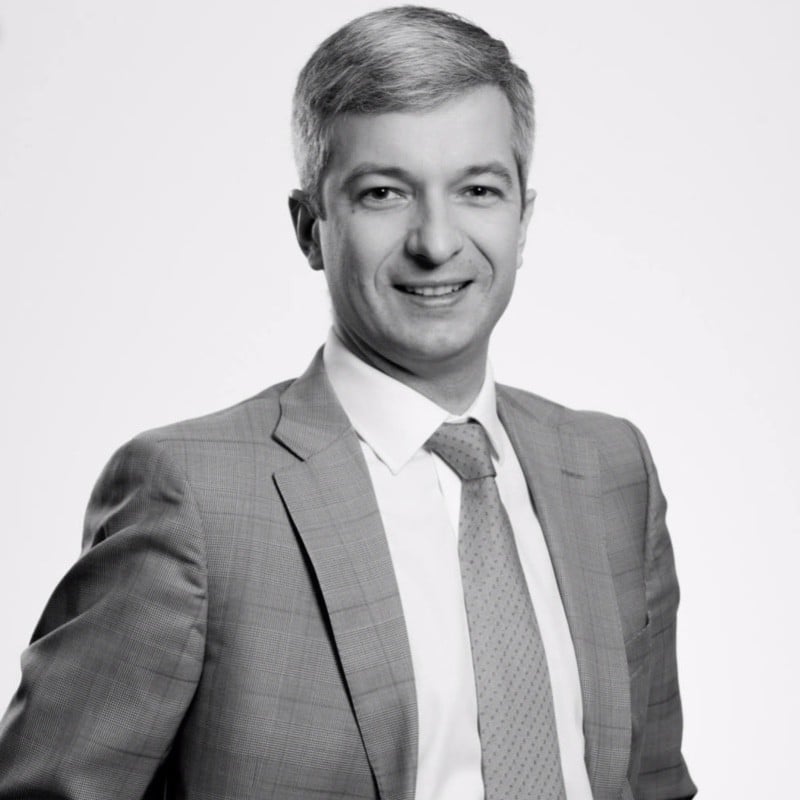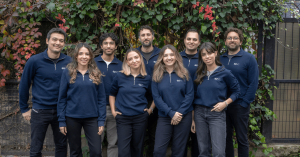Sustainability VC refers to the investments directed towards assets that bring sustainability impact. With VCs’ power to influence entire generations of early-stage companies, how are investors in the SEE enabling the opportunity to tackle sustainability challenges in the region?
To unfold the sustainability VC narrative in the SEE, The Recursive talked to venture capital companies with roots in the region about how they perceive and enable sustainable impact returns through their activities.
From the outset, we saw two main approaches with investors following the sustainability trend: a focus on startups solving environmental challenges (that affect society as well), and a focus on investing in businesses with social returns, such as education or healthcare. With the UN SDGs, our framework of reference, spread across both types of impact, we decided to include both associated types of investments in the analysis.
We start by defining the role of investors in building sustainable businesses and solutions, to then understand how startups can shine in their pitch delivery, what roadblocks investors face, and where the biggest opportunities to address sustainability challenges lie. Highlights include:
- From agriculture to transportation and supply chains, opportunities for startups abound;
- Challenges in tackling sustainability start from geographic, political, and cultural aspects – markets are small, and governments are slow;
- For a successful pitch, startups need to get ready to explain their solution to a real problem, while showing awareness of the global context.
Our analysis includes interviews with Cristian Negrutiu, Founding Partner at Sparking Capital, investor in circular economy company Evertoys and recycling platform EcoTree, and Dimitar Enchev, Managing Partner at PostScriptum Ventures, with investments in numerous renewable energy companies such as Resalta. We have also discussed with Daniela Aldescu, angel investor in Sustainibli, and Co-founder and Partner at Smart Impact Capital, which backs companies such as Voxi Kids, Alexander Konoplyasty, Co-founder and General Partner of Flashpoint, investor in medtech startup QMENTA, and Theodor Genoiu, Junior Investment Manager at ROCA X, which has invested in Medicai.
Investors to support, build, and scale the “next generation companies”
Seeing the Sustainable Development Goals as business opportunities falls with entrepreneurs and investors alike. Investors seem to agree on having a twofold role in supporting sustainable entrepreneurship and business can be seen as twofold: backing solutions that address sustainability challenges and create a positive impact on the society in the long term, while also ensuring they bring economic returns.

Dimitar Enchev, Managing Partner at PostScriptum Ventures also highlights the crucial role of the market in addressing a fundamental and massive challenge as large as that posed by climate change, to the point that we need to put a price on the environmental externalities of business operations.
From a social impact perspective, VCs mention the intention to empower socioeconomic development in the region by bringing capital, best business practices, and employment opportunities. This is, for instance, part of Flashpoint’s mission, says Alexander Konoplyasty, co-founder of Flashpoint.
Daniela Aldescu, Co-founder and Partner at Smart Impact Capital, defines “making an impact”, which is the mission of the fund, as identifying and solving real problems of the society, of the people, and of the environment, including also of the economic environment. The role of the investor is, in her opinion, that of supporting the next generation companies through investment and advice, by sharing their views, expectations, and reason behind investing in sustainable solutions:

Finally, investors can be seen as nurturers for an ecosystem that is still in its cradle. In a young startup ecosystem such as we find in the SEE, investors assume a role of nurturing it to its full potential by supporting startups with bold missions that are not afraid to tackle wicked social problems, says Theodor Genoiu, Junior Investment Manager at Roca X.
From agriculture to transportation and supply chains, opportunities for startups abound

First, the whole European economy needs to be carbon-free in 30 years, from electricity, to agriculture, construction, and every single manufacturing process, Dimitar Enchev, Managing Partner at PostScriptum Ventures points out, adding:

When it comes to the transportation sector, for instance, we can see how startups can play an important role in decarbonisation. In automotive, established automakers are expected to dominate the transition, but there is a great opportunity for startups along the value chain, such as with charging stations, the digitalization of services, and the development of software.
Overall, the logistics and supply chain verticals see among the highest impact on sustainability, since they are carbon and resource-intensive. This is why Cristian Negrutiu highlights the need for startups to address sustainability and profitability challenges in these areas.

Elsewhere, solutions with sustainability impact are needed in other carbon-intensive sectors such as agriculture and construction. Finally, when it comes to social impact, education and healthcare are most often mentioned.
Markets are small, while governments are slow
Aside from the usual challenges the business sector faces, especially at early stages, companies that focus on sustainability impact experience various roadblocks pertaining to the market, the political environment, or cultural differences.
For instance, Alexander Konoplyasty, Co-founder and General Partner of Flashpoint, explains that a big disadvantage in our region is that governments do not put enough effort into preserving and enriching human capital. Supporting education is key in helping the young build a career path, yet talent is not fully supported in the region, despite having a lot of it, especially in the IT sector.
Usually, regional governments are seen as too slow and too unambitious by investors. Even with renewable energy having become super competitive in recent years, the biggest obstacle remains the lack of ambition from governments in the sectors they dominate, such as energy and transportation, adds Dimitar Enchev, Managing Partner at PostScriptum Ventures.
In addition, the fact that SEE markets are small geographically and economically, currently makes it difficult for big institutional investors to target. Associated costs might outrun the benefits, which is why investors need support from third parties such as international financial agencies.
Some cultural obstacles also appear. In Romania, for instance, the circular economy, which involves sharing and reusing products to minimize resource consumption, is still in its infancy. An example of this is Evertoys, Sparking Capital’s portfolio company, whereby parents can rent toys on a subscription basis. The major barrier they face is Romanians’ preference for owning things, instead of sharing and renting.
Sustainability metrics are not that common yet, aside from specialized VCs
Most investors in our research do not follow any direct and specific metrics related to environmental sustainability. There are at least two factors at play. First, most investors in our analysis are generalists, with only certain investments focused on sustainability impact.

Secondly, some of the investors focus on early-stage startups, where quantifying such impact poses additional challenges, due to limited resources. Some of them mention they are considering adding sustainability metrics in the future.
For venture capital firms investing in companies that address sustainability challenges such as clean energy directly, investments are environmentally-positive by default. This is the case of PostScriptum Ventures.

However, for certain investors, one of the main pillars of investment is social impact. For Smart Impact Capital, for instance, this translates into looking at how their portfolio startups impact their respective industries, such as to what extent they have improved the access of patients to medical services.
Startups, explain your solution to a real problem in the global context


To do so, Theodor Genoiu advises startups to prepare for answering three milestone-defining questions along their journey:
- Problem-solution stage: How do I define a valuable and impactful product in both the social and financial senses?
- Product-market fit stage: How do I transform this product or service into a self-sustaining business in the medium term?
- Maturity stage: How do I measure my positive social or environmental impact and how do I develop my business further with this in mind?
Investors also want to understand how startups translate the sustainability agenda into profitable solutions. To an extent, profitability derives from efficient resource use:

Daniela Aldescu further shares three key pitching elements that can win investors over:
- Explain the problem solved – to understand if the challenge is real
- Answer the question: “Why hasn’t this problem been solved before?”, or “What will your idea bring additionally?” – to understand the opportunity
- Share details of the business model and of the people behind the business – to understand the feasibility of implementing the idea
Finally, entrepreneurs should not lose sight of the overall global context. Having awareness and an understanding of global challenges, needs, and trends, as well as of how you can gain a competitive advantage, is essential for Dimitar Enchev, Managing Partner at PostScriptum Ventures.








